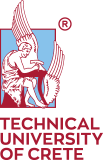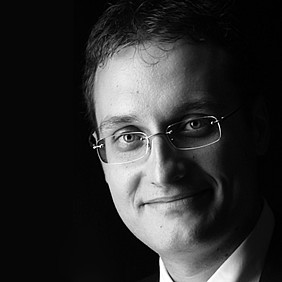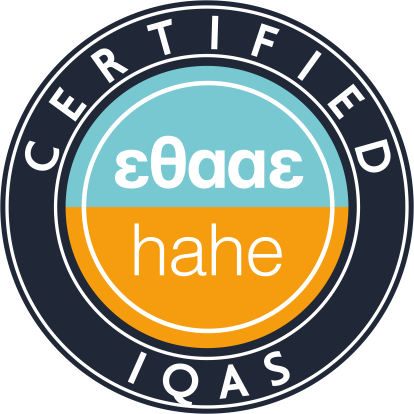Aggelos Bletsas, Associate Professor at the Technical Univeristy of Crete (ECE School) was invited to deliver a talk entitled 'Batteryless, Ambiently-Powered Internet of Things That Think: An Asynchronous Message Passing Approach', (Invited Speakers - Hot Topics in RFID session) in the context of the ΙΕΕΕ RFID 2018 (10-12 April 2018) international conference. The Hot Topics in RFID session hosts invited talks, and the year of 2018 includes invited speakes from MIT and Boeing (HRL). IEEE RFID 2018 has curated stimulating talks on current trends in RFID and IoT.
Abstract:
Recent advances on backscatter radio sensor networks have demonstrated feasibility of ultra-low power (in the order of 20 microWatts) and cost (in the order of some Euros), joint sensing and wireless networking, through single-transistor radio frequency (RF) front-ends and reflection radio/RFID principles. Furthermore, energy harvesting circuits have been demonstrated from ambient RF or bioelectric sources (plants) with record-breaking sensitivity, able to harvest ambient power, as small as 1 microWatt. Furthermore, powerful message passing algorithms (e.g., sum-product, max-product) have offered concrete examples on how decision making and inference can be facilitated through communication, at carefully crafted probabilistic graphs.
This talk is inspired by the fact that ambient energy, e.g., solar, kinetic, thermal, bioelectric or RF, has a common characteristic: fixed (on average) density per squared (or cubic) centimeter and thus, wireless sensor networks (WSN) over an extended area (or volume) could in principle harvest a large amount of energy. Thus, autonomous, in-network decisions should be possible, solely using ambient power, by 1) exploiting ultra-low power wireless communication principles (e.g., backscatter radio) and novel energy harvesting circuits, and by 2) balancing the WSN computation and communication load of (inherently parallel and distributed) asynchronous message passing algorithms (for inference), across various (distributed in space) WSN nodes.
A methodology framework is presented for reliable inference from unreliable, ambiently -powered WSNs, attempting a concrete step from coming Internet-of-Things to future Internet-of-Things-that-Think with ambient energy.
Short Bio:
Prof. Aggelos Bletsas received with excellence his Diploma from the ECE Dept. of Aristotle Univ. of Thessaloniki (AUTH) in 1998 and S.M. and Ph.D. degrees from Massachusetts Institute of Technology (MIT) in 2001 and 2005, respectively. His research interests span the broad area of scalable wireless networking, sensing and bioelectric/RF/ambient energy harvesting. He has offered concrete signal processing techniques and bistatic/multistatic architectures that extended range and coverage of backscatter radio, by at least one order of magnitude, enabling large-scale environmental, ultra-low power and cost sensor networks. He worked at Mitsubishi Electric Research Laboratories (MERL), Cambridge MA, as consultant and Postdoctoral Fellow and at Radiocommunications Laboratory (RCL), Dept. of Physics, Aristotle Univ. of Thessaloniki, as Visiting Scientist. He currently serves as Assoc. Professor in School of Electrical and Computer Engineering (ECE), Technical Univ. of Crete, at his hometown, the city of Chania. He is Associate Editor of IEEE Transactions on Wireless Communications and Technical Program Committee (TPC) member of flagship IEEE conferences. He holds two patents from USPTO, has received more than 6000 citations according to Google Scholar and has been included in the Highly-Cited Greek Scientists list. One of his Ph.D. thesis papers was recently ranked 1st in the Google Scholar Classic Papers in Computer Networks and Wireless Communication list. Dr. Bletsas was the co-recipient of IEEE Communications Society 2008 Marconi Prize Paper Award in Wireless Communications, best-paper distinction in IEEE ISWCS 2009, Siena, Italy, second Best Student Paper Award in IEEE Conf. RFID-TA 2011, Sitges, Spain, best-paper distinction in IEEE Sensors Conf. 2013, Baltimore, USA, Best Student Paper Award in IEEE Int. Conf. on Acoustics, Speech and Signal Proc. (ICASSP), April 2015, Brisbane, Australia and Best Student Paper Award in IEEE Conf. RFID-TA 2017, Sept. 2017, Warsaw, Poland.
















